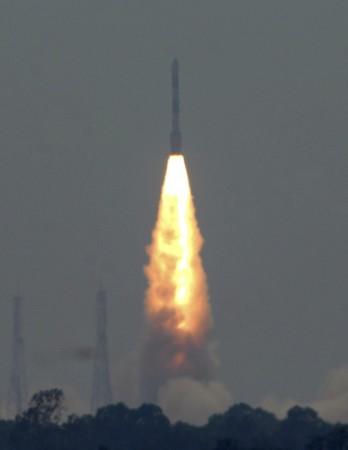
Indian Space Research Organisation (ISRO) official has said that the Country's first ever Mars mission is expected to take-off in November this year.
If the mars mission is successfully launched, India will join the elite club of five countries comprising of the U.S., Russia, Europe, Japan and China.
India's mars mission project christened as 'Mangalyaan' was approved by the government in August last year. The total project is expected to cost at least ₹470 crore.
The November launch date for the mars mission was announced by the senior ISRO scientist Jitendra Nath Goswami. He is also the Director of Physical Research Laboratory in Ahmedabad.
"Chandrayaan-2 (an India-Russia collaboration), which was to take off in 2013, has been delayed by the failure of Russian Mars mission Phobos-Grunt. We have, therefore, decided to go ahead with our Mars mission and hope to set off for the red planet on November 26-27," Goswami told the Times of India.
"The mission has a very specific science objective as we want to study the atmosphere of Mars. This mission will explore things which have not been done previously by other countries," he added.
The mission is said to be completely commissioned by India and ISRO's (Indian Space Research Organisation) in-house built PSLV-XL (Polar Satellite Launch Vehicle) will power the rocket ship to Mars.
USA is the world's first country to successfully perform the flyby mars mission in 1964-67. NASA's Mariner-4 spacecraft succeeded to send back first 21 exclusive images of Mars's surface.
India's first moon mission "Chandrayan-1" was launched successfully during October 2008. The mission was intended to complete two years but the mission was only able to complete 312 days.
However, the mission was able to achieve 95 percent of the operation objectives, earning appreciation from across the world. One of the achievements of the Chandrayaan-1 mission was the discovery of widespread presence of water molecules on the moon surface.
Indian second moon mission 'Chandrayaan-2' is expected to be launched in 2016.
Following the Chandrayaan-1 mission achievements, the Indian mars mission is expected to unravel the dark secrets of the lifeless red planet.

















